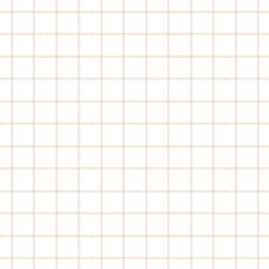


Poland
Homeschooling in Poland has a very long tradition. Due to political conditions, it was a popular form of education in the 18th and 19th centuries. After Poland's rebirth, after the partitions, in 1932, homeschooling was included in the Education System Act. During World War II, it took the form of secret education. In 1956, the possibility of homeschooling was eliminated by the communists. The renaissance came in 1991, when homeschooling was included in Polish law.
After 2009, we have observed a constant and dynamic increase in the number of children using this form of education.
Currently, around 60,000 children use homeschooling in Poland, which constitutes 1.3% of the population of school-age children. Homeschooling is regulated in the Education Law in Article 37.
Our Polish insider

Mariusz Dzieciątko
Doctor of technical sciences, Data Scientist, lecturer at the Warsaw School of Economics and the Polish-Japanese Academy of Information Technology. President of the Family Education Association. For eighteen years he has been involved in improving and monitoring Polish law, popularizing home education and supporting home education families. Father of three children. They were all homeschooled.
Art. 37. Education Law
Permission for a child to fulfill the obligation of preschool preparation, school obligation or education in other forms
1.
At the request of the parents, the director of a public or non-public preschool, primary school and post-primary school, to which the child has been admitted, may allow, by way of a decision, for the child to fulfill the obligation referred to in art. 31 preschool education par. 4, outside the preschool, preschool department in primary school or other form of preschool education and school obligation or education obligation outside school.
2.
Permission referred to in par. 1, may be issued before the start of the school year or during the school year, if:
1)
(repealed)
2)
the application for the permit is accompanied by:
a) (repealed)
b) a statement from the parents that the child will be provided with conditions enabling the implementation of the core curriculum applicable at a given stage of education,
c) a commitment from the parents that the child fulfilling the school obligation or the obligation to study will take the annual classification exams referred to in par. 4 in each school year.
3.
The provision of par. 2 item 2 letter c shall not apply in the case of issuing the permit referred to in par. 1 for children and young people with a decision on the need for special education issued due to moderate or significant intellectual disability.
4.
A student fulfilling the school obligation or the obligation to study outside of school obtains annual classification grades based on annual classification exams within the scope of the part of the core curriculum applicable at a given stage of education, agreed for a given school year with the school principal. Classification exams are conducted by the school whose principal has permitted the fulfillment of compulsory schooling or the obligation to study outside of school. Such a student is not given a conduct grade. The classification exam is conducted accordingly in accordance with art. 44l classification exam or art. 44wa classification exam of the Education System Act and the regulations issued on the basis of art. 44zb regulation on the assessment, classification and promotion of students in public schools of the Education System Act.
5.
The provision of par. 4 does not apply to children and young people with a decision on the need for special education issued due to moderate or significant intellectual disability.
6.
The annual and final classification of a student fulfilling compulsory schooling or the obligation to study outside of school is carried out in accordance with the provisions of chapter 469_3a of the Education System Act. 7.
A student fulfilling the school obligation or the obligation to study outside of school, as well as the parent of such a student, may benefit from the support of the school, the principal of which has issued the permit referred to in par. 1, covering:
1)
the right to participate in classes at school, referred to in art. 109 basic forms of teaching and educational activity of the school par. 1 points 2, 3 and 5–7;
2)
ensuring access to:
a) textbooks, educational materials and exercise materials, referred to in art. 54 par. 1 of the Act on the financing of educational tasks, and
b) teaching aids for the implementation of the core curriculum contained in the school's resources - in agreement with the principal of that school;
3)
participation in consultations enabling preparation for the annual classification exams referred to in par. 4.
8.
The permit referred to in par. 1 shall be withdrawn:
1)
at the request of the parents;
2)
if the student, for unjustified reasons, did not take the annual classification exams referred to in par. 4, or did not pass the annual classification exams referred to in par. 4;
3)
if the permit was issued in violation of the law.
